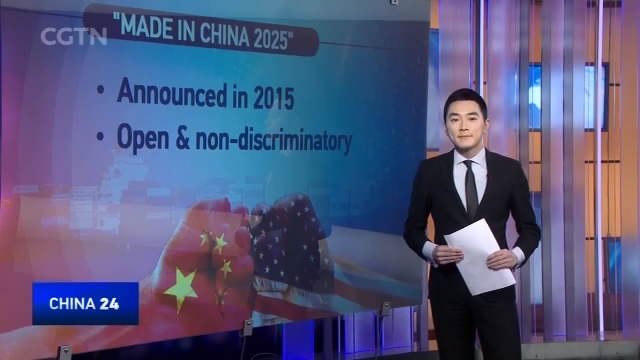
21:20, 06-Apr-2018
China-US Trade Tensions: US tariffs on China effective in reducing deficit?

For more on the trade frictions, joining me now in the studio is my colleague Jiang Shaoyi. Shaoyi, tell us more about the bilateral trade, as well as the US purposed tariff list.
SHAOYI: Well, US Ambassador to China Terry Branstad said that one of Trump's aims in imposing such tariffs on Chinese imports is to bring down the trade deficit. According to China's General Administration of Customs, last year, the US trade deficit with China was about 275 billion US dollars. However, the US has also been running a huge trade surplus in services with China. In the first five months of 2017, that surplus reached 23 billion US dollars. That was up 17 percent from the same period in 2016. So we first need to consider, regarding bilateral trade, is it reasonable to exclude such huge amounts of Trade in services, and focus only on trade in goods? And even though there is a trade deficit, will taxing the products on the proposed list reduce that deficit? According to the Chinese Ministry of Commerce, China's biggest trade surplus with US is in products such as cellphones, computers, as well as toys and clothing. These are also the US' major imports from China every year. But if we take a closer look back at the proposed tariff list, we could find that NONE of these categories are on it. So what HAS been included on the list? Products concerning sectors, such as aerospace, robotics, machinery as well as information and communication technology. Well, it seems like the products are more relevant to sectors the "Made in China 2025" initiative plans to promote. This plan was announced 3 years ago. It aims to develop and acquire advanced technologies in fields such as 5G communication, artificial intelligence, robotics, and biopharmaceuticals. The plan is based on an open and non-discriminatory attitude. It allows both foreign and Chinese companies, from either the public and private sectors, get involved. So back to Washington's planned tariffs on China, I think one pressing question is whether it's an effective way to bring down the trade deficit in goods, or just another trade protectionism move to safeguard unfair competition? Qiu Yuan

SITEMAP
Copyright © 2018 CGTN. Beijing ICP prepared NO.16065310-3
Copyright © 2018 CGTN. Beijing ICP prepared NO.16065310-3